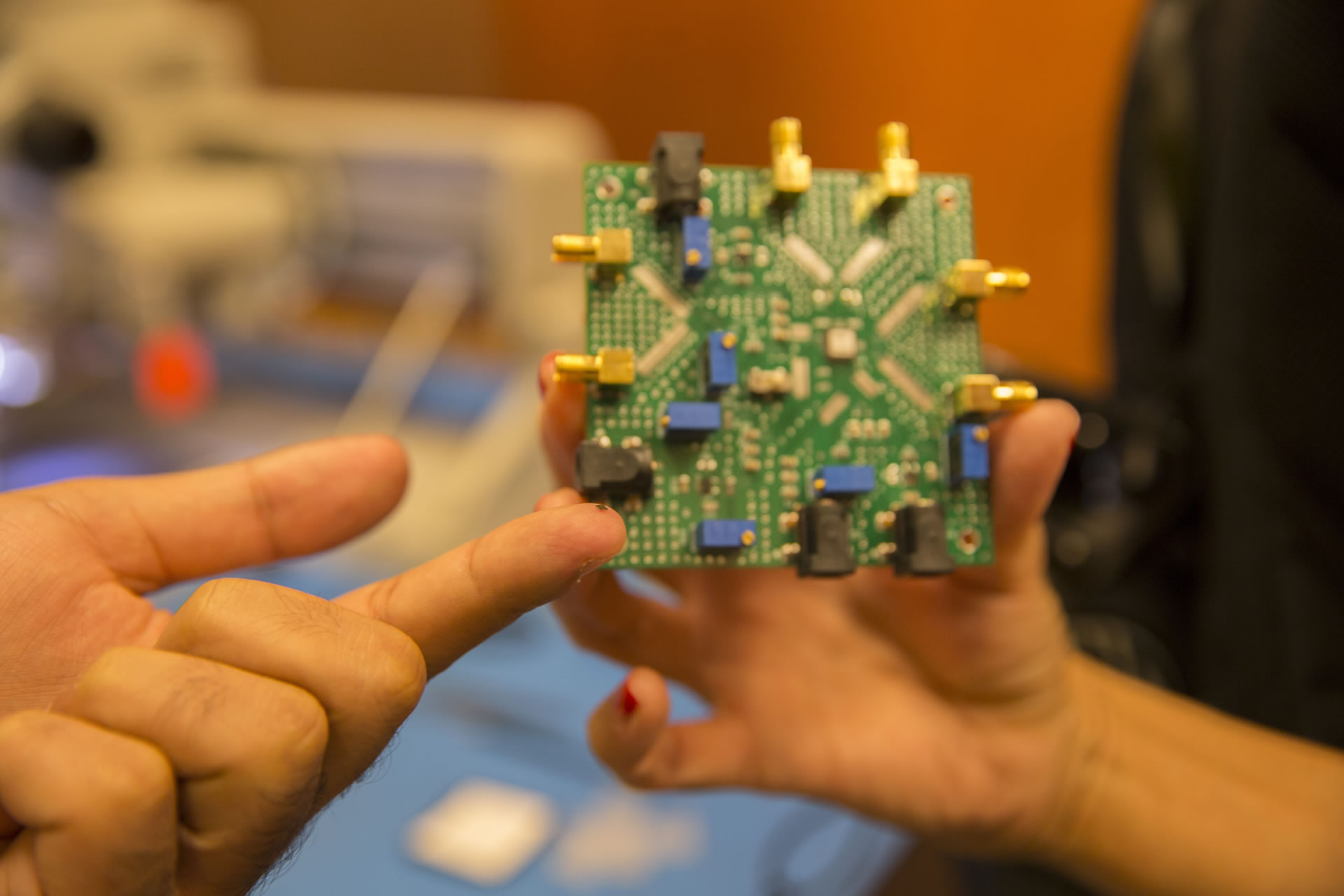
Computer engineering graduate program
Arizona State University’s computer engineering graduate degrees combine expertise and courses from the Ira A. Fulton Schools of Engineering’s School of Computing and Augmented Intelligence and School of Electrical, Computer and Energy Engineering.
Areas of research
Autonomous systems and robotics
Communications and networks
Distributed, dependable and secure systems
Multimedia and signal processing
VLSI, architecture and embedded systems
Master’s degree
This 30-credit hour master’s degree program for students who want to design and implement state-of the-art systems in industrial research and development using skills beyond the bachelor’s degree level.
The program is also appropriate for students considering doctoral degrees and seeking to gain research experience. Program graduates can work with scientists and engineers in high-tech lab settings developing innovative products and systems.
Students gain strong foundational knowledge in computer engineering’s underlying sciences. Program graduates can use engineering principles to develop new computing technology.
Doctoral degree
The doctoral degree program is for students with strong math and physical science skills interested in gaining in-depth knowledge of engineering and pursuing a career in academia, research or technical entrepreneurship.
Students prepare to independently pursue creative and substantive high-impact innovation. Students are required to complete 84 credit hours — 18 of which are in a concentration focusing on electrical engineering or computer systems — and a dissertation. with supervisory committee approval, up to 30 credit hours from a master’s degree may count toward degree requirements.
Why computer engineering?
About the degree
The computer engineering, or CEN, program combines resources from the School of Computing and Augmented Intelligence (SCAI) and the School of Electrical, Computer and Energy Engineering (ECEE). The CEN program’s doctoral and master’s degree options require students to determine a concentration they’d like to pursue:
- Computer systems (SCAI)
- Electrical engineering (ECEE)
A student’s concentration determines their academic support team. CEN students gain knowledge and skills to advance and develop the design, system integration, testing, evaluation and deployment of state-of-the-art hardware and software. Potential areas of focus include computing, wired and wireless communications and networking, control functions, sensing, signal processing and actuation.
The interdisciplinary computer engineering program includes hardware and software courses that build on the fundamentals of computer science, electrical engineering and applied math.
The field
Computing systems are embedded in nearly everything, including smartphones, appliances and medical devices. They involve functions such as computation, multi-modal sensing, signal processing, communications and control. These functions unlock a world of possible new applications in areas such as homeland security, human-computer interaction, green computing and pervasive health care.
Moreover, functions the evolving relationship of hardware and software enables the next generation of adaptive and intelligent computing systems to address emerging complex societal, health, security and sustainability problems.
Computer engineers build devices, components and systems that perform computations. Computer engineering includes the design, analysis and optimization of systems that span nearly 10 orders of magnitude in scale — from components billionths of a meter in size to systems spanning hundreds of square meters, such as data centers.
Future job options
Students with a doctoral degree in computer engineering have a variety of options for well-paying jobs, including academic positions, government and industrial research centers and senior engineering positions in industry.
Computer engineering employers
Component manufacturers: The key components in a modern computer system include software, integrated circuits and circuit boards. Significant players in this market with a presence in Arizona include Intel, IBM, Microchip Technology, onsemi, NXP Semiconductors, Marvell Technology and Qualcomm.
System integrators: System integrators combine computing system components into finished end products. Arizona has several major electronic control system integrators catering to the aerospace and defense market, including Honeywell, Raytheon Technologies, Boeing and General Dynamics.
System innovators: System innovators design and strucutre software and hardware components in novel ways to solve problems efficiently. Several companies conduct computing systems research in Arizona, including Intel and IBM.